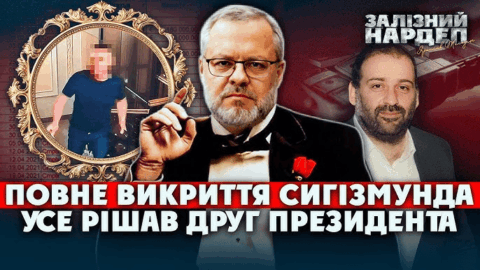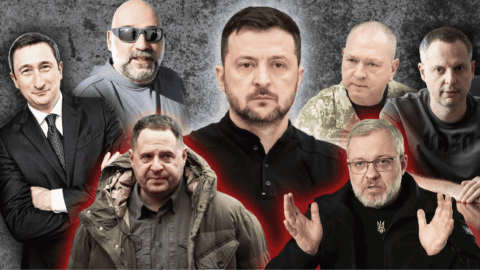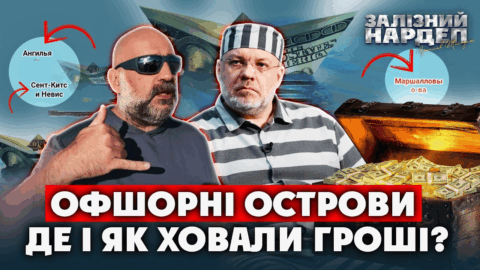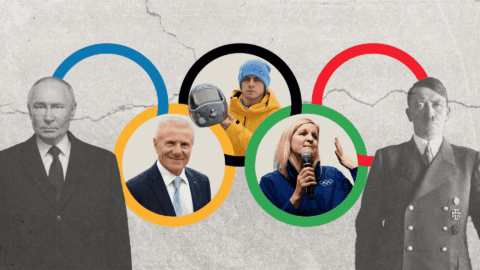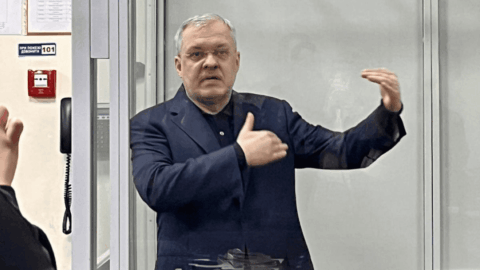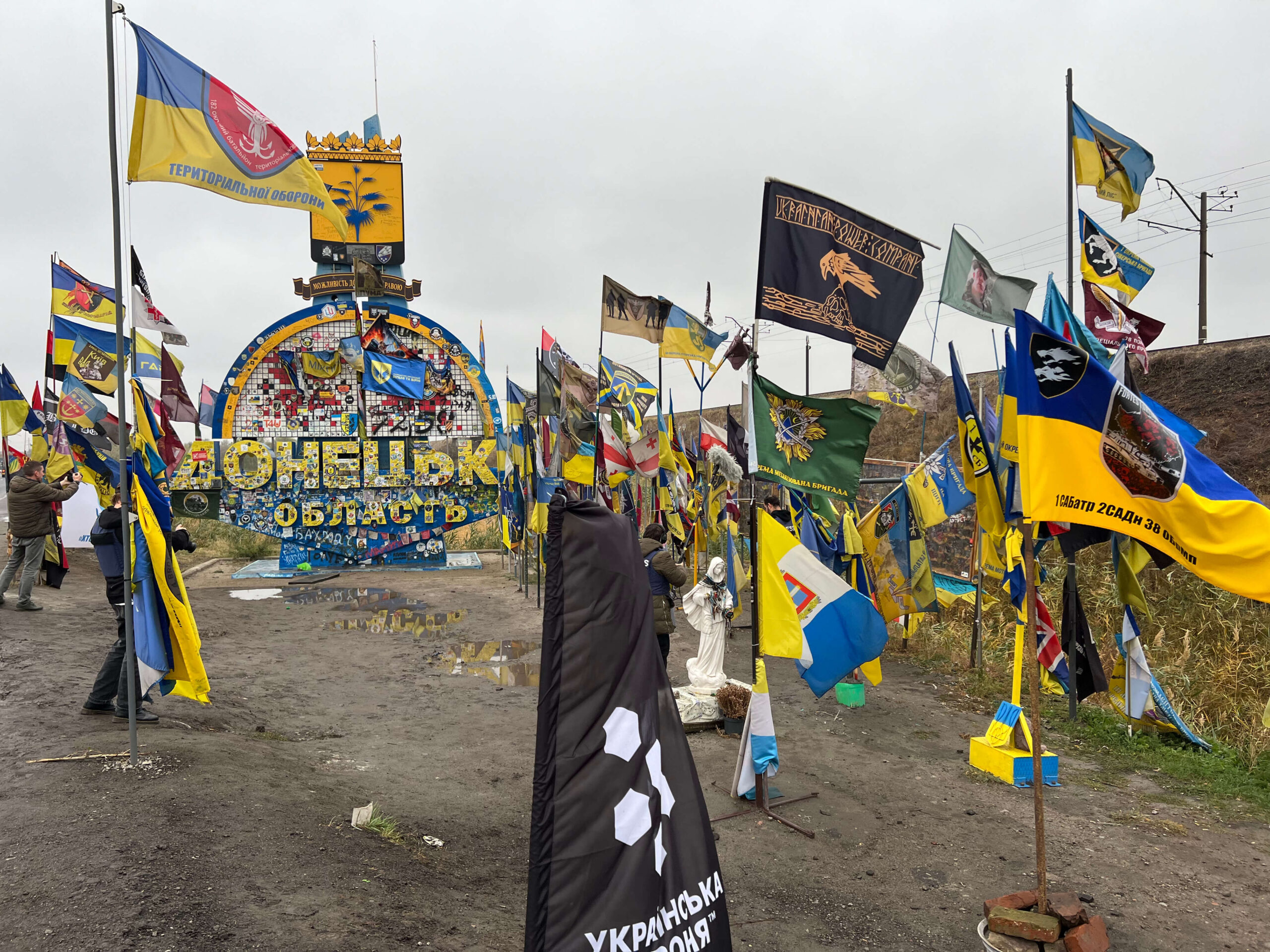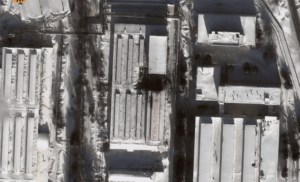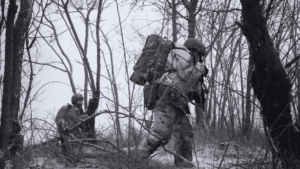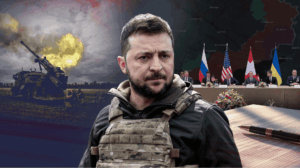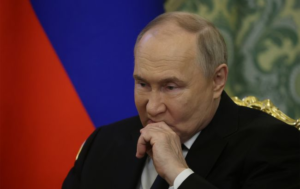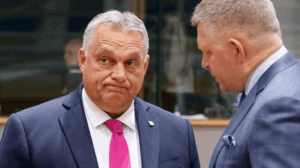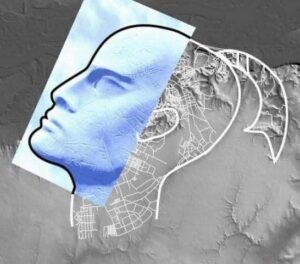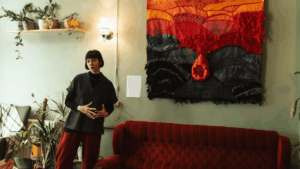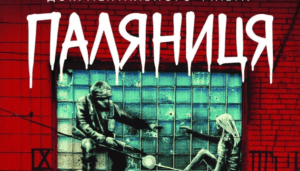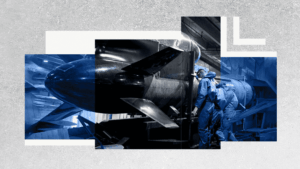Timur Mindich, once a shadowy but influential figure, emerges at the center of a sweeping corruption scheme that spans government agencies, seized assets, and high-ranking officials. Ukrainska Pravda’s year-long investigation uncovers covert meetings, operational license plates, secret offices, and a network involving ARMA, Sensbank, and top ministers allegedly tied to Mindich’s financial curator, Oleksandr Zukerman.
Surveillance shows ministers living in seized estates, businessmen linked to Mindich gaining control over former Russian assets, and officials assisting questionable decisions during wartime. As NABU and SAPO pursue Operation Midas, questions intensify about the scale of Mindich’s influence — and who enabled it.
Timur Mindich suddenly becomes the most mysterious figure in Ukraine’s recent history.
After the full-scale Russian invasion of Ukraine, such an influential person as Mindich led an extremely private life. According to Ukrainska Pravda sources in political circles, Mindich did not go to restaurants, as he had a personal chef at home. Therefore, all meetings over lunch or dinner took place in his office, located in an apartment on the 18th floor at Hrushevskoho 9A, where he lived three floors below.
President Zelenskyy also has an apartment in the same building, which provided additional security measures for Mindich’s activities. As a result, it was extremely difficult for the Ukrainska Pravda film crew, which tried several times over the past year to document his secret meetings, to remain unnoticed.
Mindich’s daily life was not only private but also covert. He rarely walked the streets in Ukraine and had the privilege of using cars with operational license plates without legal justification. At meeting locations of the organized criminal group members, as emphasized by NABU and SAPO representatives, counter-surveillance measures were even employed.
Nevertheless, we managed to document certain episodes of “Carlson” and his associates’ activities.
Details in Ukrainska Pravda new investigation.
“Mykhailo Tkach: On 10 November, we were standing outside the building at 9A Hrushevskoho Street, waiting for Timur Mindich to be brought out in handcuffs, and for the country’s history to split into a before and after, because Mindich in handcuffs would be justice. It all began with a friend who had direct access to the president’s office, and ended with Operation Midas, when the country was shocked by the scale of corruption. For over a year we kept hearing from various sources that Mindich was everywhere. We tried several times to work on this figure, but, as NABU already said, this criminal group used not only secrecy measures but also countersurveillance. However, we wouldn’t be ourselves if we hadn’t managed to capture a few interesting episodes.
So if you think that Timur Mindich influenced only the energy and defence sectors of the state, it seems that is not the case.
On 1 May 2025, the National Agency of Ukraine for Finding, Tracing and Management of Assets Derived from Corruption and Other Crimes . The head of the agency, Olena Duma, exits the ARMA premises. She gets into the new Mercedes belonging to her deputy, Grigol Katamadze, and the Mercedes drives off. In the middle of the working day, the deputy head of ARMA drives Duma to an address that, seven months later, NABU and SAPO will describe as the back office of the chief financier of Timur Mindich, Oleksandr Zukerman — the DMC clinic. Duma stays in the clinic for 50 minutes. For almost an hour, the deputy head of ARMA circles around looking for parking. And at 16:35 he picks up the head of the State Agency, who oversees arrested assets worth billions of hryvnias.
On 23 July this year, Olena Duma supported the destruction of the independence of NABU and SAPO. The official statement of the ARMA head: “The state has taken the right steps. Order is being restored in the country. I support draft law 12414. The anti-corruption infrastructure is working and will continue to work. Only without Russian influence – we must clear all of that out. And there must be more justice.”
And already on 30 July, a few days after Ukrainska Pravda published information about the possible wiretapping of Timur Mindich’s apartment, Olena Duma suddenly resigns from ARMA.
Olena Duma: “The opportunity to simply show honest, normal relations with people during the war, and at the same time, if the timing allows, we will defend their interests.”
And one more interesting point: at the beginning of last week, NABU and SAPO announced Operation Midas concerning the influence of Timur Mindich, and already at the end of the week the reboot of ARMA was announced. But as of now, NABU and SAPO have not published any evidence regarding Mindich’s influence on ARMA or on Olena Duma. This may indicate that the president’s office could have known, even without NABU, which state institutions Timur Mindich had influence over, and is acting in advance.
The only but: Olena Duma was appointed to lead ARMA in 2023, which means that for two years the arrested assets obtained through corruption or confiscated from Russians could have been managed by Mindich.
“We were able to inventory the value of arrested assets on the territory of Ukraine — today the total amount exceeds 200 billion hryvnias.” — Olena.
How could Duma have helped Timur Mindich’s criminal group? Example number one. A figure in the NABU and SAPO operation codenamed Midas — former Minister of Energy and, at the time of the operation, Minister of Justice Herman Halushchenko — according to Ukrainska Pravda’s law enforcement sources, spent the night of 10 November here during the searches, in one of the most expensive cottage settlements in Ukraine and Kyiv — Tsarske Selo. This is the house of the former Minister of Internal Affairs under Yanukovych, Vitaliy Zakharchenko, who fled to Russia and works for Putin’s occupation regime.
Vitaliy Zakharchenko: “Most likely, it is Kharkiv that will be declared the new capital of the new Ukraine. The central authorities in Kyiv have already lost control, and all their actions are merely reflexive.”
According to MP Yaroslav Zhelezniak, this estate was seized at the beginning of 2021, after which it was transferred to ARMA. In 2023, Olena Duma becomes the head of the agency, and in 2025, according to Ukrainska Pravda’s law enforcement sources, the energy minister controlled by Mindich, Herman Galushchenko, moves into the seized estate.
Galushchenko: “In fact, Russia has destroyed all the agreements that existed in the world, first and foremost those concerning security.”
Vitaliy Zakharchenko: “The grouping of armed forces in Mariupol and Volnovakha, where powerful fortified areas are located, is already in operational encirclement, and after several days of siege they will be cleared.”
According to Ukrainska Pravda’s sources, another regular visitor to the house of the traitor and collaborator — a property that ARMA should have sold at auction so the state could receive the funds — is Svitlana Grynchuk, who replaced Halushchenko as Minister of Energy this summer.
Svitlana Grynchuk: “Indeed, energy providers are forced to apply hourly blackout schedules in 12 regions of Ukraine. These restrictions will be in effect from 7 a.m. to 11 p.m.”
Galushchenko: “We still need to save electricity, even when it is already a limited resource.”
Vitaliy Zakharchenko: “The military operation of the Russian army and the Donbas corps continues.”
How did two ministers at once — who, according to the investigation, could have been controlled by Timur Mindich — gain access to a seized estate that was under ARMA’s management? And if the state could have received several million dollars from the sale of such an estate, then from the next property, which ARMA also did not sell and which also ended up under the control of a person connected to Mindich, the state could have received hundreds of millions. But, as in the case of Zakharchenko’s house, it received nothing.
Olena Duma: “To show the unity of the people and to help those who defend our country, who protect our sovereignty on the front line.”
Last December, Ukrainska Pravda reported how the country’s largest petrochemical plant, Karpatnavtokhim — which was connected to Russians and, after the start of Russia’s full-scale invasion, had been seized — suddenly came out from under arrest and ARMA’s management, and then, by coincidence, a share of the plant ended up with this businessman from Drohobych, Andriy Veselyy.
Andriy Veselyy: “This project is a vivid example of synergy between the authorities, entrepreneurs, neighbors, and the community.”
At the same time, Andriy Veselyy’s brother, businessman Vasyl Veselyy, became an advisor to the chairman of the supervisory board of another former Russian asset — Sensbank. According to Ukrainska Pravda’s sources in law enforcement and business circles, Veselyy is not just an advisor but may act as a curator and a so-called “overseer” over the institution.
Mykhailo Tkach: This company, you probably know, was seized and transferred to ARMA’s management, so it was already under ARMA. Then the seizure is suddenly lifted, and your brother becomes a co-owner of Karpatnavtokhim.
Vasyl Veselyy: Just a second, no no no.
Mykhailo Tkach: And at the same time, you are appointed to work at the state-owned Sensbank.
Vasyl Veselyy: I am appointed to work there?
Mykhailo Tkach: Yes, you don’t work there and have no connection to Sensbank?
Vasyl Veselyy: I am at Sensbank as a public advisor, that’s how I work there.
Mykhailo Tkach: Who do you advise and on what?
Vasyl Veselyy: Mr. Shevki, the public supervisory board.
Mykhailo Tkach: Ah, so you advise the head?
Vasyl Veselyy: So look, you now want from me… You ran up to me like this, want to talk to me about something? You ran up, you were waiting for me to speak with me, is that correct?
Mykhailo Tkach: Well, it’s not so easy to talk to you.
Vasyl Veselyy: How is it not easy?
Mykhailo Tkach: Yes. Please tell me, how did you get the job at Sensbank? Who recommended you? As far as I understand, you have no experience in the banking sector.
Vasyl Veselyy: Who recommended me?
Mykhailo Tkach: Who approved? Who recommended?
Vasyl Veselyy: The supervisory board elected and approved.
Mykhailo Tkach: You?
Vasyl Veselyy: Yes, me personally.
Mykhailo Tkach: And why you? Do you have any experience?
Vasyl Veselyy: Is there some problem with that? Am I causing you some discomfort?
Mykhailo Tkach: No, we’re just asking how it happened. You just coincidentally entered Sensbank as an advisor, while your brother joined Karpatnavtokhim.
Vasyl Veselyy: Mykhailo, well, you’ve now created some kind of fuss about this. I don’t even understand…
Mykhailo Tkach: According to our information, and this is confirmed by many sources from political, business, and financial circles, you got into Sensbank, and now, according to our sources, no issue in Sensbank is resolved without your approval.
Vasyl Veselyy: You, my friend… maybe, let’s see, just a second. You’re quite the orator.
Mykhailo Tkach: I’m not an orator, I’m just a journalist.
Vasyl Veselyy: Now, just a minute, come with me to the government quarter. I’ll show you where I live. That’s first.
Mykhailo Tkach: But we believe you.
Vasyl Veselyy: No, look, you’re just… Sensbank, and what’s the connection? What does Sensbank have to do with what I advise?
Mykhailo Tkach: It’s a state-owned bank.
Vasyl Veselyy: Okay.
Mykhailo Tkach: A state-owned bank. Or are these business matters?
Vasyl Veselyy: Just a second, this is my… well, this is a public position, so that I can advise. They chose me, invited me to go and advise them. You’re saying now that nothing is decided without me. Are you even aware of what you’re saying? I just can’t even understand.
Mykhailo Tkach: Absolutely.
Vasyl Veselyy: Are you aware of what you’re saying?
Mykhailo Tkach: Coincidence, absurdity, and slander. Vasyl Veselyy was offended almost a year ago.
Vasyl Veselyy: You’re coming to me with a complaint about how I…
Mykhailo Tkach: We have questions regarding your involvement with the state-owned Sensbank and your brother with the asset that was under ARMA’s management.
Vasyl Veselyy: What questions? Please tell me.
Mykhailo Tkach: I just asked them.
Vasyl Veselyy: Questions about my work at Sensbank? I answered you. About ARMA? And what do I have to do with ARMA and my brother and the deal, I don’t understand…
Mykhailo Tkach: Well, you are commenting on this issue, arguing. That means you know the details.
Vasyl Veselyy: Of course I know the details. But how can I tell you the details of the purchase-sale agreement itself? How could I tell you?
Mykhailo Tkach: And what problems do you see?
Vasyl Veselyy: I don’t want to tell you. You are the problem.
Mykhailo Tkach: I am the problem?
Vasyl Veselyy: You are the problem. Yes.
Mykhailo Tkach: Why, whose problem?
Vasyl Veselyy: Because today you want to interfere…
Mykhailo Tkach: I want to understand how an asset that was seized came out from under seizure, and your own brother…
Vasyl Veselyy: How should I know? Ask my brother. Why are you asking me this?
Mykhailo Tkach: I’ll ask him too, but given your connections in Kyiv, I think you could be…
Vasyl Veselyy: What connections in Kyiv?
Mykhailo Tkach: Whether any money was actually paid for the share of Karpatnavtokhim, or if he just acted as a front person — Andriy, Vasyl Veselyy’s brother, could not explain.
Mykhailo Tkach: From what we’ve seen and understand, you didn’t have sufficient official income to make such an expensive purchase. And we wanted to find out whether you really bought the share in Karpatnavtokhim through a fund, or if it was possibly transferred to you under some conditions.
Andriy Veselyy: Thank you very much for your awareness and understanding. I am confident that, if necessary, I will know to whom and how to explain the sufficiency of my income at 52 years old, and I will definitely have the opportunity to explain all of this to you, Mr. Mykhailo.
Mykhailo Tkach: Just from what we see, your income is around 4 million hryvnias over a long period.
Andriy Veselyy: Mr. Mykhailo, thank you very much, please, don’t meddle in my income as a journalist.
Mykhailo Tkach: Then numerous Ukrainska Pravda sources in law enforcement and business circles reported that behind the Karpatnavtokhim story could be the head of the president’s office, Andriy Yermak, and it seems we have found yet another explanation for this incredible success story during a major war.
31 March 2025, Kyiv. Vasyl Veselyy leaves his home and arrives at the DMC clinic already known from the Midas operation, of the financier of Timur Mindich’s criminal group, Oleksandr Zukerman. Then Vasyl Veselyy goes to a pharmacy with this unknown man. He was unknown until 10 November this year, as he is Oleksandr Zukerman, nicknamed Sugarman, who a week ago received a suspicion notice from NABU and SAPO and is currently hiding in Israel.
14 July 2025
Carlson: So, did you bring me anything?
Sugarman: No, I told you — tomorrow. Tomorrow I’ll give it to you (inaudible). Count how much you need — 300, 500?
Carlson: I don’t know, because that one still needs…
Sugarman: (whispering) 150, 200, 350, and pass 450 to ***, for the construction to be covered (one word), 500.
Mykhailo Tkach: It seems that Veselyy and Sugarman, also known as Zukerman, are well acquainted. Just as it seems that Vasyl Veselyy is well acquainted with Timur Mindich.
According to Ukrainska Pravda sources in law enforcement and business circles, meetings of Mindich and Zukerman with Vasyl Veselyy regularly took place at this secured facility on Trukhaniv Island, known in the circles as “Banya.”
25 February 2025. A car with Vasyl Veselyy enters the complex. Several other cars with operational license plates also enter. According to Ukrainska Pravda sources in law enforcement, Mindich himself uses more than ten different cars.
For example, on 20 October this year, a Toyota Camry with cover license plates, which are not in the police database, leaves Hrushevskoho Street, 9A. The Toyota heads to Trukhaniv Island and enters the secured territory of the complex. The Camry leaves the territory after two hours and returns to the building on Hrushevskoho Street, 9A.
According to sources of Ukrainska Pravda in business and law enforcement circles, this complex belongs to Yuriy Horovyi. In 2019, the publication “Nashi Hroshi” called Horovyi one of the most influential and private people in the country, as well as the “overseer” of the state construction and architectural inspection.
From time to time, cars linked to the developer Vadym Stolar enter this facility. A car connected to Veselyy also arrives directly at Hrushevskoho Street, 9A. This Cadillac is registered to Vasyl Veselyy’s brother, Andriy, who received a share of Karpatnavtokhim in 2024.
This is September of last year, this is November, and this is already October of this year. Mindich had returned to Ukraine just a few days earlier, which is why the lights were on in one of the businessman’s apartments on Hrushevskoho Street, 9A, while security was on watch near the entrance to the building.
At 8:30 p.m., the already familiar Cadillac leaves the building’s premises. We follow the car. Not far from the side checkpoint near the SBU headquarters, a man hands a pair of license plates into the vehicle.
The Cadillac then heads out of the city, the driver exits the highway, and changes the license plates. Immediately afterward, the car drives out again with new plates. The vehicle is now equipped with cover license plates, which are not registered to anyone and can be used for undercover operational work by law enforcement.
Within a few minutes, the Cadillac enters a cottage settlement where, among others, the deputy head of the president’s office, Oleg Tatarov, lawyer Vasyl Farynnyk, former Party of Regions member Volodymyr Prodivus, and many other notable people live.
What could so closely connect Timur Mindich and Vasyl Veselyy? According to Ukrainska Pravda sources in business and law enforcement circles, Mindich may be able to exercise control over the state-owned Sensbank through Vasyl Veselyy. Having one’s own bank is extremely useful for a young financial-industrial group that is rapidly growing or has been rapidly growing.
Particular attention should be paid to the fact that, according to the information presented in the suspicion notice against Timur Mindich, he attempted to profit even from the sale of body armor to the state, and, according to the Public Anti-Corruption Council at the Ministry of Defense, Vasyl Veselyy assisted him in this.
Next is a quote from the document, as I have already mentioned, included in the suspicion notice against Timur Mindich.
“During the inspection of the product samples, non-compliance with the requirements of the regulatory and technical documentation and the reference sample was detected. A repeated inspection of the samples again revealed discrepancies. At the same time, on 8 July 2025, between 7:30 and 8:50, T.M. Mindich, being at the premises at Hrushevskoho Street, 9A, acting intentionally and illegally with the aim of obtaining the adoption of an unlawful decision by the Minister of Defense of Ukraine, Umerov, regarding the acceptance by the state enterprise of the Ministry of Defense of Ukraine of body armor under the contract (contract number), which had not passed quality control, and obtaining material benefit as a result, interfered with the official activities of the Minister of Defense. Using persuasion and insistence to accept the body armor under contract (number) and to make the payment, he illegally influenced Umerov. The following expressions of T.M. Mindich indicate the acts of persuasion and insistence:
— ‘I ask you, don’t leave, but the body armor is a lot of money, just let them sign the acceptance, that’s all, but this is just one call for you.’
Mykhailo Tkach: Profanity.
— ‘Just say it, I don’t want to hear anything more from Timur about the body armor, and I meet with him twice a week.’
Mykhailo Tkach: This is important, as it indicates that Timur Mindich met with the Minister of Defense, apparently, twice a week.
— ‘Well, this is your team, that’s all, solve this issue, I ask you. Otherwise, it will be (expletive). Just 7 million there, half of my money is invested.’
Mykhailo Tkach: Under the same circumstances, Umerov informed a source as follows:
— ‘I heard, I’ll call again and say: look, what you need from me so you can do it.’”
High Anti-Corruption Court: Honorable Court, the pre-trial investigation in this criminal proceeding has established that no later than January 2025, Timur Mykhailovych Mindich, taking advantage of the situation in Ukraine during the period of martial law, his friendly relations with the President of Ukraine, and his connections with current and former senior officials of state authorities and law enforcement agencies, and using his significant influence in the state, with the aim of satisfying his personal interests, decided to unlawfully enrich himself by organizing the commission of crimes in various sectors of Ukraine’s economy.
Throughout 2025, facts of Mindich’s criminal activity in the energy sector were established through his influence on the Minister of Energy of Ukraine, Galushchenko, and in the defense sector through his influence on the Minister of Defense of Ukraine, Umerov.
The successful implementation of his criminal activities depended on Mindich obtaining personal connections with the heads of ministries and holding systematic meetings with them, as well as with other influential persons of the state, at his actual place of residence. This communication allowed Mindich to unobstructedly receive, both personally and through enterprises under his control, significant amounts of money in exchange for assistance from these and other persons.
Mykhailo Tkach: More than ten cars, operational license plates, security, counter-surveillance, secrecy, secured territories, parking lots, front persons, “overseers,” seized assets, state enterprises, ministries, top officials, and tens of millions of dollars — all of this was being managed during the full-scale Russian invasion of Ukraine, just a few steps from the government quarter, which has been closed for nearly four years for security reasons.
But, as the NABU and SAPO operation called “Midas” has shown, power must be controlled: open the government quarter.”
Tags: ARMA Energy Sector Corruption High‑Profile Scandal mindich case Money Laundering NABU Investigation Organized Crime Political Crime Ukrainian Corruption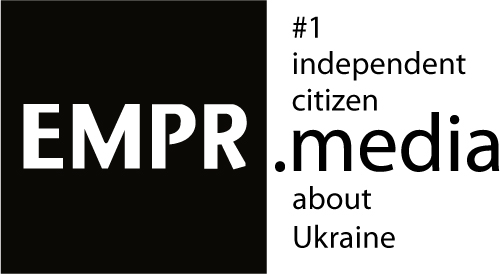
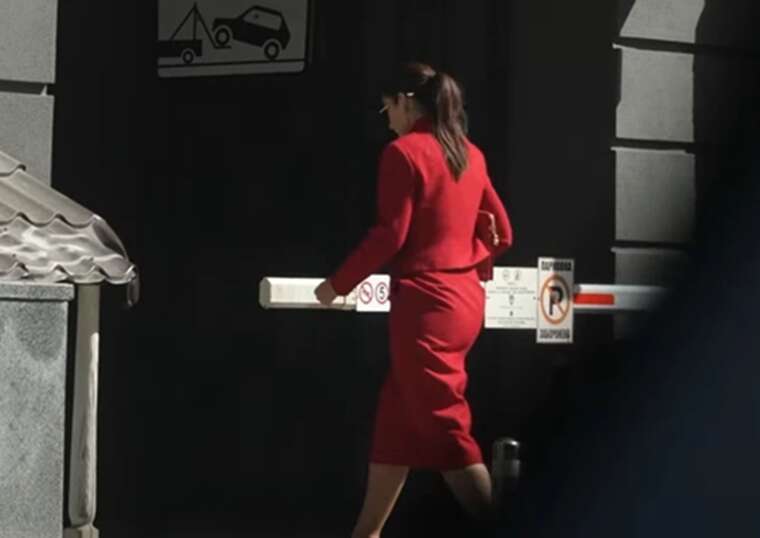

![The Kyiv Instytutska Street massacre during the Maidan Revolution of Dignity, where Berkut’s “Black Company” shot and killed unarmed protesters. :contentReference[oaicite:2]{index=2}](https://empr.media/wp-content/uploads/2026/02/photo-1-480x270.png)
